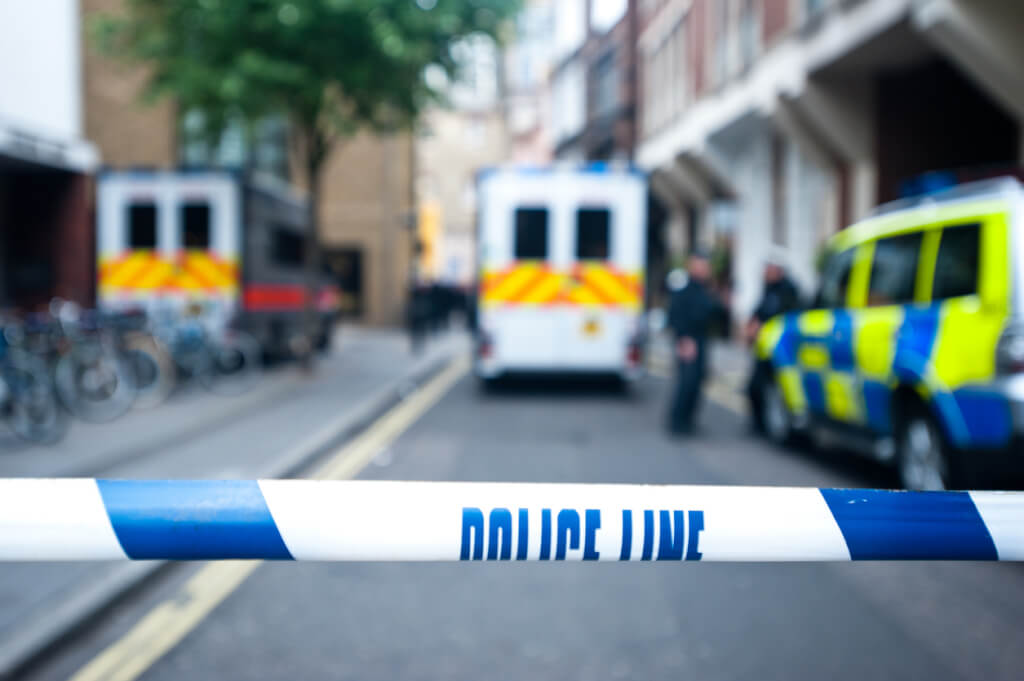Know Your Rights: How To Behave With US Police
'17.06.2020'
ForumDaily New York
If you are stopped by the police, you have a stressful experience. Edition ACLU describes the requirements of the law and suggests strategies for meeting police. You cannot assume for certain that employees will behave in a certain way or respect your rights. But you must know these rights. Remember that you can reduce the risk for yourself by staying calm and not showing hostility towards officers.
The police stopped you in public
Your rights
You have the right to remain silent. For example, you are not required to answer any questions about where you are going, where you come from, what you do or where you live. If you want to exercise your right to remain silent, voice this desire out loud (in some states you may need to provide your name if asked to identify yourself, and an employee may arrest you for refusing to do so).
You are not required to consent to a search of yourself or your belongings, but the police can run your hands over your clothes if they suspect that you have weapons. Please note that the refusal will not prevent the employee from conducting a search against your will, but timely objection before or during the search can help to preserve your rights in any subsequent legal process.
If you are arrested by the police, you have the right to a lawyer appointed by the government, if you cannot afford it.
You do not need to answer questions about where you were born, whether you are a U.S. citizen or how you entered the country (separate rules apply at international borders and at airports, as well as for people who have certain non-immigrant visas, including for tourists and business travelers).
How to reduce the risk for yourself
Take it easy. Do not run away, do not resist, and do not obstruct the officers. Do not lie or provide false documents. Keep your hands where the police see them.
What to do if you are detained or arrested
Say you want to remain silent and immediately ask a lawyer. Do not give any explanation or excuse. Do not say anything, do not sign anything, and do not make any decisions without a lawyer. If the police arrested you, you have the right to make a local phone call, and the police cannot listen if you call a lawyer, but they can easily do this if you call someone else.
If you think your rights have been violated
Write down everything you remember, including the badges of officers and the numbers of patrol cars, the agency from which the officers were, and any other details. Get contact information for witnesses.
If you get injured, consult a doctor immediately and take a picture of your injuries.
Submit a written complaint to the agency’s internal affairs department or to the citizen complaints committee. In most cases, you can file a complaint anonymously if you wish.
What can you do if you witness police abuse?
Stand at a safe distance and record what is happening on video. As long as you do not intervene in what the officers are doing and are not close enough to impede their movement, you have the right to observe and record events that are clearly visible in public places.
Do not try to hide the fact that you are recording. In many states, you have to let people know that you are recording them. Police officers cannot confiscate or demand the viewing of your photos or videos without a warrant, and they cannot delete your photos or videos under any circumstances. If an officer orders you to stop recording or orders you to transfer your phone, you must politely but firmly tell him that you do not agree to this, and remind the officer that taking pictures or video is your right under the First Amendment. Keep in mind that you may be arrested for refusing, even if their orders are illegal. Compare risks.
Regardless of whether you are able to record a video, be sure to write down with a text everything that you remember, including the numbers of officer passes and patrol cars, from which agency the officers were, how many officers were present and their names, any use of weapons (including less deadly weapons such as stun guns or batons), and any injuries they inflicted. If you can talk to a person stopped by the police after leaving the site, this person may find your contact information useful if he decides to file a complaint or lawsuit against the police.
On the subject: What salaries do cops get in different states of the USA
The police made you pull over
Your rights
Both drivers and passengers have the right to remain silent. If you are a passenger, you may ask if you can leave. If so, leave the car silently.
How to reduce the risk for yourself
Stop the car in a safe place as quickly as possible.
Turn off the car, turn on the interior lighting, partially open the window and put your hands on the steering wheel. If you are in the passenger seat, put your hands on the dashboard.
Show your driver’s license, registration and insurance confirmation upon request.
Avoid sudden movements and keep your hands where the officer sees them.
Otherwise, follow the instructions for the first item: "If you are detained in public."
The police are ringing your door
Your rights and how to reduce your risk
You are not required to invite an officer to your home. Talk through the door and ask for your identification card. You do not need to let the police in unless they present you with a warrant signed by a bureaucrat that states your address as a place to search or which shows your name as the subject of an arrest warrant.
Ask the officer to slip the warrant under the door or bring it to the window so you can read it. A search warrant allows the police to enter at the address indicated in the warrant, but officers can only search in areas and objects that are listed. The arrest warrant indicates the name of the person to be arrested.
Even if the officer has a warrant, you have the right to remain silent. You should not answer questions or talk with officers while they are in your house and conducting a search. Stand silently and watch what they do, where they go and what they take. Write down everything that you observed as carefully as possible.
If your rights have been violated
Write down everything you remember, including officers' badges and patrol car numbers, from which agency the officers were, and any other details. Get contact information for witnesses.
Submit a written complaint to the agency’s internal affairs department or to the citizen complaints committee. In most cases, you can file a complaint anonymously if you wish.
How to be a responsible witness
If you are a guest in the house and have come to the door, you must make it clear to the police that you are a guest and cannot let officers inside without the landlord's permission.
On the subject: All police officers involved in the death of George Floyd were arrested: they face up to 40 years in prison
You were arrested by police
How to prepare for a possible arrest
Prepare yourself and your family in case you get arrested. Remember the phone numbers of your family and your lawyer. Make an emergency plan if you have children or are taking medication.
Do not resist arrest, even if you think the arrest is unfair. Follow the directions of the officers.
You have the right to remain silent, call a lawyer, record all data and shoot a video, pay attention to how to do it correctly, in the paragraph “You were stopped by the police in public”.
The police violated your rights
If possible, write down everything you remember, including the numbers of officer passes and patrol cars, as well as the agency in which they work. Get contact information for witnesses.
If you get injured, consult a doctor immediately and take a picture of your injuries. Submit a written complaint to the agency’s internal affairs department or to the citizen complaints committee.







